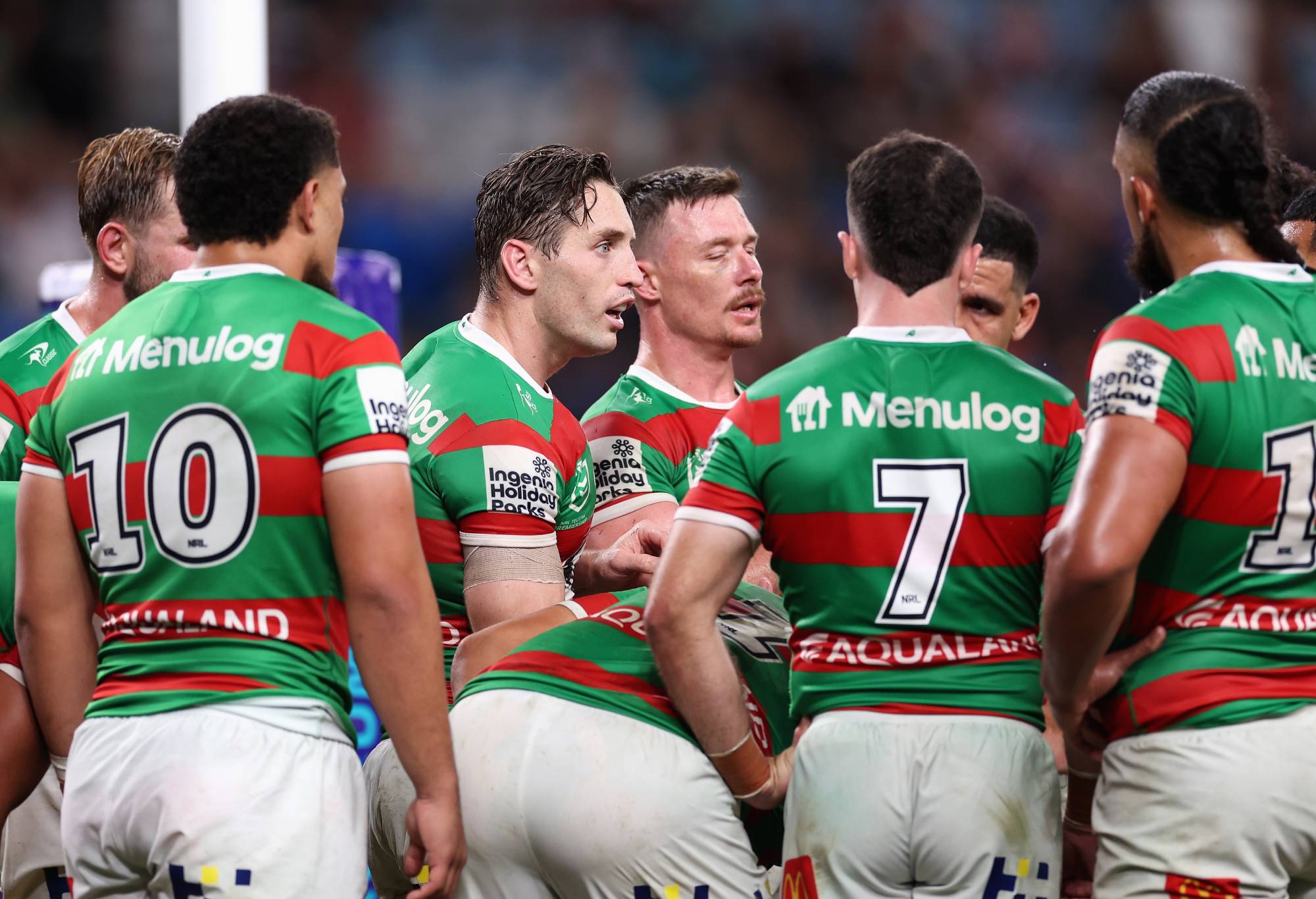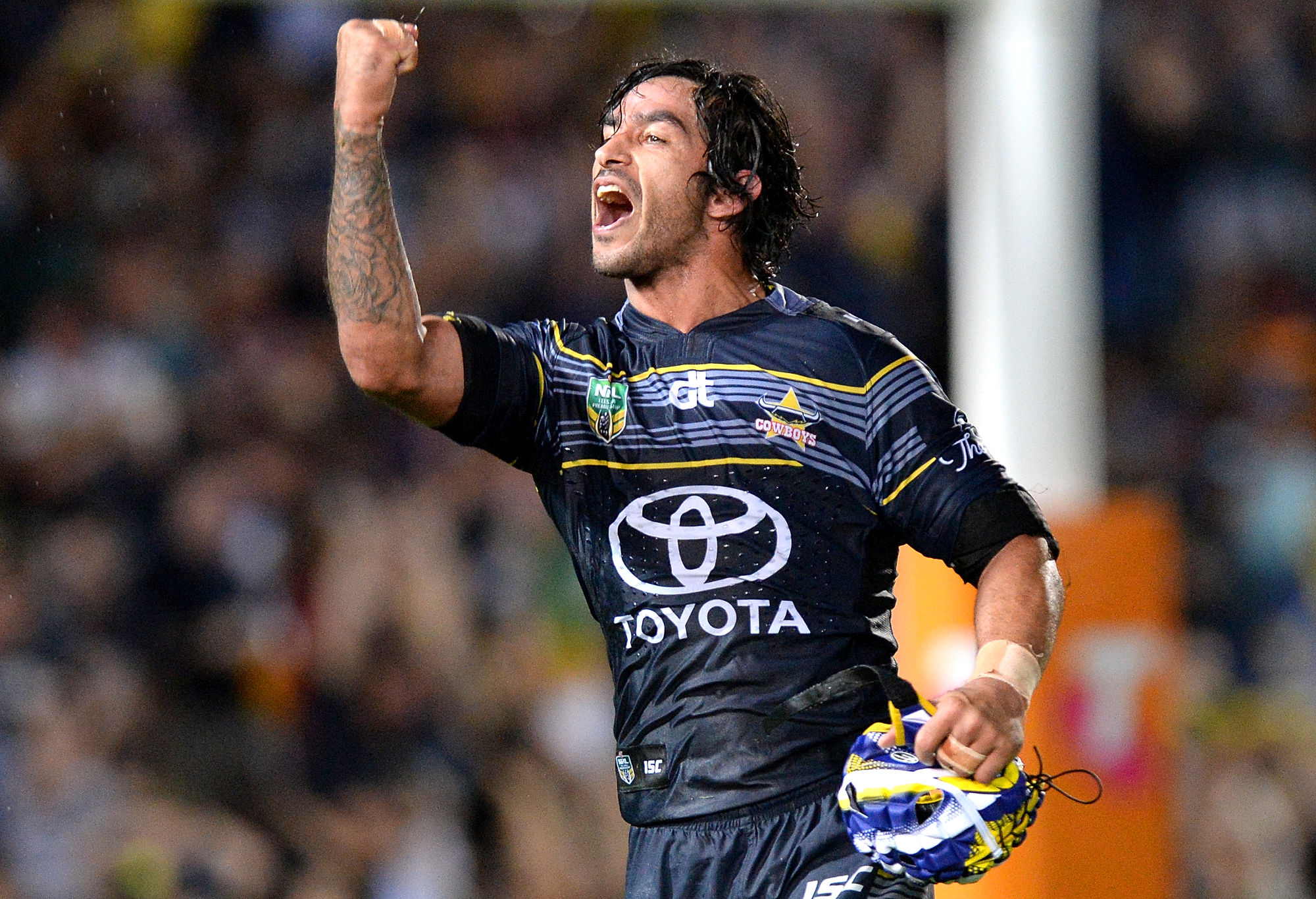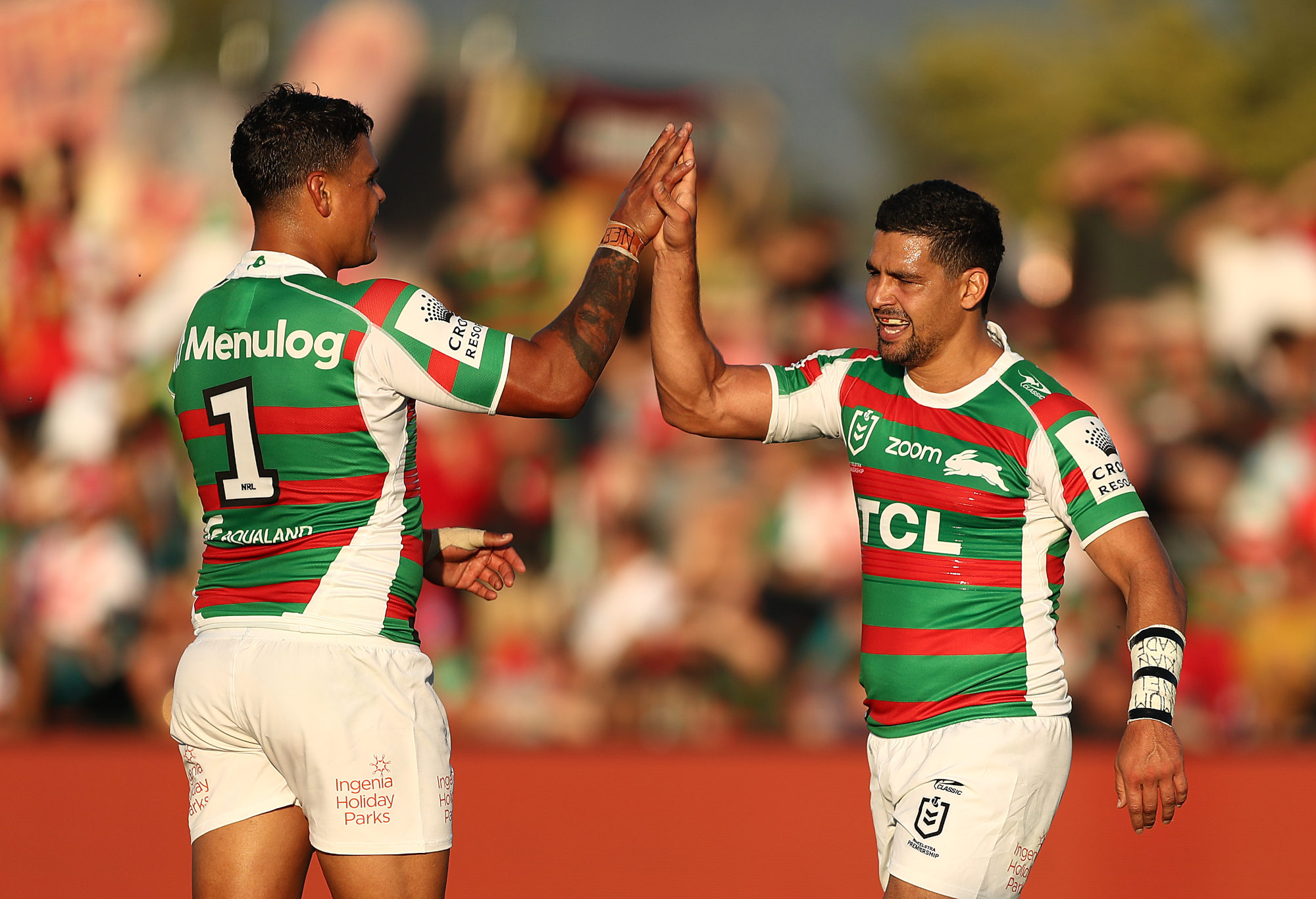It all comes down to habits. Losing is a habit, and so is winning.
For a team like South Sydney, with four wins from their last 16 games, it can be a nightmare to break.
With the Bunnies, it is doubly so: their style of play, which foregrounds attacking footy, is predicated on a willingness to take risks and, inevitably, make errors, with Cody Walker and Latrell Mitchell often in the firing line.
The correlation between success and errors on an individual level is well established – currently topping the count in the NRL are Tom Trbojevic and Kalyn Ponga and last year’s ‘worst’ culprit was Reece Walsh – and the ability to make mistakes without fear will be central to any recovery that coach Jason Demetriou can inspire at South Sydney.
Walker, for example, made five errors on Friday night in the landslide defeat to the Roosters, but also laid on one of Souths’ tries with a high-risk pass that put four points on a plate for Jacob Host.
The Roar asked Demetriou after the game how he would empower his players not to act with fear in this week’s Good Friday showdown with the Bulldogs despite the clear weight of pressure that was bearing down on the likes of Walker and Mitchell.
“In patches we looked good,” he said.
“Cody was getting his hands on the ball more and was as creative as he has been since the start of the season, which is a positive going forwards, but it was one of those nights where the last pass for us was forward and the last for them landed in their hands.
“You make your own luck, you know. We need to have more red and green jerseys in the frame and making sure that whatever takes we’re protecting our try line.
“We know if we can do that, there’s points in this footy team. There’s no doubt about that.
“But at the moment, we’re carrying the burden of the end of last season and we’ve carried into the start of last season. The only way to get that off our back is to train hard and play well next week. That’s what all the focus is about.”
Ahead of this week’s meeting at Accor Stadium, The Roar League Podcast spoke to elite sports psychologist Dr Jo Lukins, who has over 30 years working in the NRL and with some of the best players in the world, about how to build the mentality to cope even when errors occur.
“It’s likely for most people, including the elite, that the way you choose to interpret a situation and the ability for you to be able to flush it, is a habit of thinking,” she said.
“If you don’t pay attention to that, it will control you. You can’t do anything about it unless you notice it.

Cameron Murray talks his teammates at Allianz Stadium. (Photo by Cameron Spencer/Getty Images)
“One thing that I say to athletes, particularly the elite, is that the first thing they need to do is pay attention.
“You’ve had something go well: where did your head go to? If something didn’t go too well: where did your head go to? Be curious about that.”
Lukin further explained that realising that time was fleeting was vital to maximising performance.
“It’s about the athlete’s ability to navigate through the three passages of time,” she said.
“All of us have three passages of time: what’s happened in the past, what’s happening to us right now and what’s going to happen in the future.
“That last moment, whether I was scoring the try or the try was scored behind me, is gone. It’s now history. It’s recent history, but it’s history.
“It’s a good chance that me standing on the field beating myself up mentally for being so terrible and letting this thing happen doesn’t get me closer to my goal of what I have to do in the next moment.
“Being able to navigate past, present and future mentally is a really important skill for athletes.
“Physically, it’s easy because you’re in the moment and I’m in the moment. I know that because neither of us have the superpowers to magic ourselves into eight o’clock tonight or what I was doing yesterday.
“Physically, you can only ever be in the moment. Mentally, you’re a time traveller.”

Johnathan Thurston (Bradley Kanaris/Getty Images)
Lukins worked extensively with Johnathan Thurston and used his experience in the 2015 NRL Grand Final, in which he missed a late kick in regulation time but then landed the winning field goal, as a perfect example of how a player can respond to setbacks.
“That is the example from the 2015 Grand Final is about an athlete’s ability to get their head in the right place at the right time,” she explained.
“What serves me best eight now? Where should my focus be? What do I need to be doing?
“That ability to park it, use a black box, flush it, there’s lots of different analogies used in sport that athletes have to find what’s going to work for them. It’s about spending enough time in the past to learn the lesson.
“If I was working with a player and they were walking off the field at half time, then it is useful for them in that moment to reflect on that half and see where the lessons are.
“What did they do well? Where’s the room for improvement? What happens as a result of that?
“There’s definitely merit in thinking back in that moment, because you have time to do it. Then you head into the sheds, you grab a water, you get the coach’s address and then, perhaps, as you walk out and back onto the field, your mind might gravitate to what you do next. What does this next 40 minutes look like for me?
“What I see in elite athletes is their ability to understand getting their head in the right place at the right time. It’s all timing.”
How players got over mistakes was both a question for them and for the coaches, in terms of creating an enviroment that allows the right type of mistakes to happen.

(Photo by Mark Metcalfe/Getty Images)
“In rugby league, errors are part of the game,” said Lukins.
“When you understand that and can use an error as an opportunity for learning. Coaches tell me that they don’t mind their players making errors because that means they’re out there having a go.
“They probably don’t want to make the same error four times, but errors are part of the game and it’s how you respond to them that’s going to be most important in moving forward.
“The term I use is error recovery. How do you recover from an error? It’s even the language around it. The athlete who says I just made a mistake, that was a failure, instantly that would be the first thing I’d want to talk to them about.
“Was it a failure or did it just not go the way that you want it to? What does it mean? I might define a failure for me and it might spur me on and be helpful, but someone else might say it’s a failure and they’ll have a terrible negative spiral and you might as well take them off the field.
“Everyone responds to that self talk in a different way. The art of coaching is understanding the humans in front of you and how to get the best from each of them.
“Striving for perfection is setting yourself up for failure, and where athletes will be more benefitted is focussing on excellence.”
Hear the full interview with Dr Jo Lukins on The Roar Rugby League podcast on Apple Podcasts here and on Spotify here or by searching wherever you get your podcasts.































































































